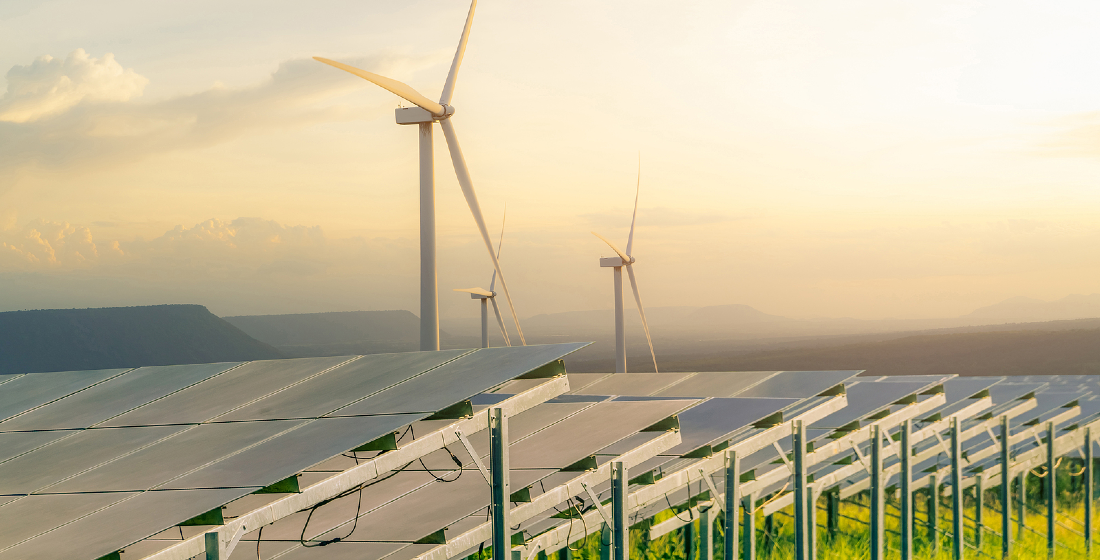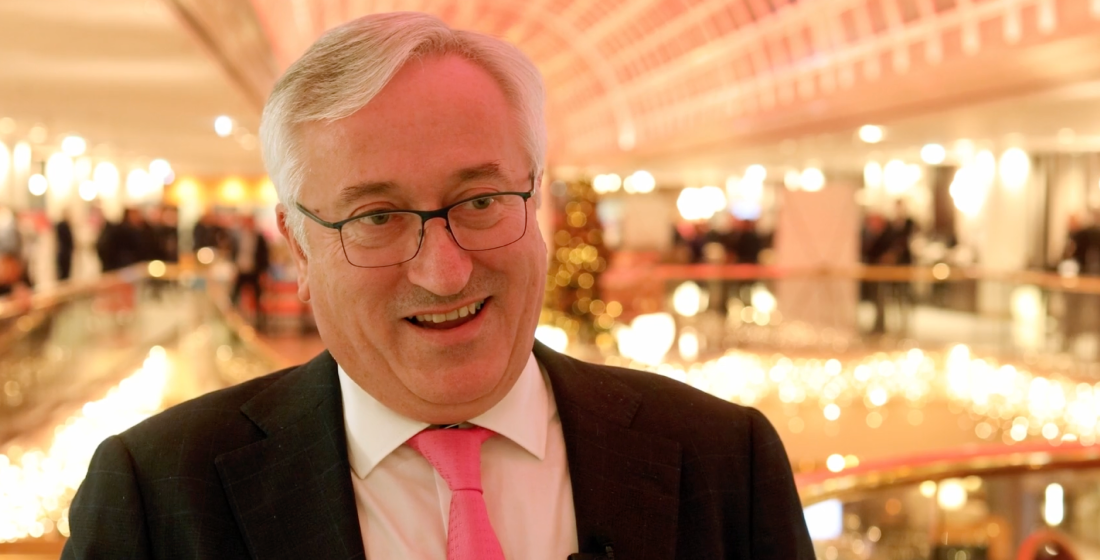Masdar and Acwa's Stans stampede
The Stans are beginning to look like a renewables double-act for Masdar and ACWA Power, with a host of utility-scale project agreements signed across the region over the past few months.

On 2 March ACWA Power signed a head of terms agreement with the Kazakh Ministry of Energy and sovereign wealth fund Samruk-Kazyna to lead and develop a 1GW wind energy and battery storage project. The $1.5 billion scheme is ACWA’s first project in Kazakhstan and is expected to be completed by 2027.
Masdar also debuted in the Kazakh renewables market in January with a similar agreement with the Kazakh Ministry of Energy and Kazakhstan Investment Development Fund (KIDF) to jointly develop up to 1GW of wind, with the first phase focused on deploying 500MW with the possible inclusion of battery storage.
More Kazakh deals from both sponsors will very likely follow. At the end of 2021 wind accounted for just 4% of Kazakhstan’s installed capacity. Contrast that with the Kazakhstan 2050 Strategy, which includes the country meeting 50% of its energy requirements via alternative and green energy technologies by 2050, and moves by Kazakhstan to fast-track development, and ‘likely’ very quickly becomes ‘certainly’.
Uzbekistan also booming
The same competitive double-act is also having significant tender success over the border in the more rapidly developing market in Uzbekistan. So rapid has Uzbekistan renewables development become that ACWA recently signed an agreement with the Uzbekistan government and state-owned Uzkimyosanaot for the country’s first green hydrogen project – a green hydrogen project in Uzbekistan would have generated laughter as a market prediction just six months ago.
ACWA has an accelerated development timeline for the project and is targeting commissioning for December 2024, which might prove challenging if the developer is planning on tapping DFI or ECA support for the scheme. That said, ACWA’s Uzbek investment portfolio is now only second in size to its domestic Saudi portfolio, so the developer has the experience and financing relationships to get the deal done as quickly as possible.
In late December 2022 ACWA also signed power purchase agreements (PPAs) and investment agreements with the Uzbek government to develop the $2.4 billion 1.5GW Kungrad wind farm in Karakalpakstan (formerly referred to as the Karakalpakstan Wind IPP). The project will comprise three 500MW plants, with each incorporating a 100MW capacity battery energy storage system. When complete, the scheme will be the largest single-site wind farm in Central Asia.
In the same month ACWA also raised two syndicated loans totalling $520 million to part finance construction of its 500MW Bash and 500MW Dzhankeldy wind projects in the Bukhara region. This month, ADB approved a total of $200 million of loans to both schemes, with the DFI putting up $50 million in direct loans and the remainder coming from the ADB-administered Leading Asia’s Private Infrastructure Fund (LEAP).
The deal has heavy EBRD backing. The Bash project debt comprises a $277 million facility split between a $150 million EBRD A loan and a $127 million B loan syndicated to commercial lenders. The Dzhankeldy financing totals $243 million split between a $150 million A loan and a $93 million B tranche. The two projects will be co-financed by DEG, Proparco, Standard Chartered and other commercial lenders.
Masdar looking for financing
Masdar has also been adding to its Uzbekistan deal pipeline, most recently winning a tender for a 250MW solar project in the Bukhara region. Voltalia and Powerchina were also successful in the same tender, winning 100MW and 150MW schemes respectively.
Masdar’s biggest Uzbekistan deal to date has been the Zarafshan wind project financing in 2022 which closed despite an increase in base rates between PPA signing and financial close. The deal arguably set the template for wind IPP financing in the country and included some novel financial engineering specifically designed for the Uzbek market: notably, provision by the EBRD of a revolver to cover construction period VAT payments – the first time a DFI had offered such an instrument in the country.
This year Masdar is looking to reach financial on three solar plants that were tendered in the first half of 2021 – the 220MW $202 million Samarkand solar IPP, the $207 million 220MW Jizzakh solar IPP, and the $431 million 457MW Sherabad solar project. The EBRD is considering providing debt for all three schemes, and other DFI lenders that participated alongside EBRD in Masdar’s Zarafshan deal – ADB, IFC and JICA – are also likely looking at the financings.
And lest we forget, in 2021 Masdar signed an implementation agreement with the government to expand the capacity of Zarafshan from 500MW to 1.5GW. That expansion, even if phased and funded with a considerable equity portion (Zarafshan was financed on a 52/48 debt to equity ratio), will still require significant amounts of debt.
The TXF perspective
The snowballing debt requirement for these projects will almost certainly mean tapping development finance institutions, which have already bankrolled the rapid developments to date in Uzbekistan.
Although Kazakhstan has an investment grade credit rating, the pathfinder status of both ACWA and Masdar’s wind deals means they will likely require some DFI support.
Similarly, although Uzbekistan has made great strides with energy liberalisation, the introduction of a specific renewable energy law and a PPP law (both in 2019) – and most commercial lenders would concede the bankability of Uzbekistan renewables projects is relatively strong because of government backing of offtake obligations, long-term PPAs and tariffs in US dollars – the country’s sovereign rating is still three notches below investment grade, despite having been recently upped by Moody’s to Ba3 from B1. In short, a pure commercial bank deal is still a long way off.
The current level of DFI support for Stans renewables shows no signs of diminishing in the immediate future, particularly as Uzbek renewables projects transition from medium- to utility-scale. For example, Masdar’s Nur Navoi Solar PV scheme – Uzbekistan’s first solar IPP, financed in 2020 by IFC, ADB, World Bank and EBRD – was just 100MW in scale. Two years later and Masdar was back with a project financing for its $580 million 500MW Zarafshan wind scheme – the first wind IPP to reach financial close in Uzbekistan.
The increasing scale of projects reflects the upping by the Uzbekistan government of its initial renewables ambitions. The government’s Energy Supply Security Concept 2020-2030, issued in April 2020, targeted 8GW of renewables – 3GW of wind and 5GW of solar – to come on stream by 2030. In 2022 the targets were upped to 8GW to be in place by 2026, and a further 4GW by 2030 – 12GW in total, of which 5GW will be wind and 7GW solar.
Given the burgeoning developer appetite for Stans renewables – for example, an Uzbek RfP launched in December for a 300MW solar project near Kashkadarya went out to eight prequalified bidders – the long term capacity targets of both the Uzbek and Kazakh governments, while ambitious, may yet be met. But the growing debt requirement could prove problematic for DFIs unless the pace of transition from pure DFI to blended finance, and finally to pure commercial bankability, picks up in tandem.
Become a subscriber today for unrestricted access to the best export, trade and commodity finance analysis available.
Click here for information on the different packages available for you and your team
Exclusive subscriber-only content published last week:
DFIs and brokers: Insights from BPL Global and Frontclear on enhancing local money markets
Private insurers and DFIs have been working together to extend the reach of development financing into local capital markets. Charlotte Hampshire, director at BPL Global, and Hugh Friel, vice president of Frontclear, outline the many challenges and some of the solutions developed so far.....Read on here
Keynote: Futnani on engaging superpowers in MENA and beyond
Manav Futnani, global co-head of export finance and head of Middle East, North Africa and Turkey infrastructure and asset finance at HSBC, talks to TXF about how the sustainable energy transition is to be financed in the region, and how ECAs are stepping up....Read on here
TXF Americas: The land of ECA opportunity
The top takeaways from TXF Americas in Miami last week reflect both the need for ECA adaptability and greater support for small-ticket business, with energy transition at the forefront of the export finance mandate.....Read on here
Indian IPP Fourth Partner Energy out to banks for rooftop solar schemes
Indian IPP Fourth Partner Energy (FPE) — comprising Norfund and private equity firm Texas Pacific Group (TPG) — is out to banks for.....Read on here
Egypt's Ras Ghareb wind farm loan signed
Sponsors of the 500MW Ras Ghareb wind farm in Egypt’s Gulf of Suez — comprising Engie (35%), Toyota Tsusho & Eurus Energy (40%), and...Read on here
Indonesian water PPP financing to sign next month
The DFI/ECA-backed financing funding a roughly $200 million-equivalent water PPP scheme in Indonesia is expected to sign next month. Sponsored...Read here
Tierra expands with cover for Natixis-arranged renewables projects
Specialist insurance company Tierra Underwriting Europe BV (Tierra) has revealed a recent expansion of activity through the conclusion of a number of...Read on here
Orsted sounds the UK offshore costs alarm
Orsted has built a reputation for bidding on projects very competitively by accounting up front for what had been fairly predictable cost savings as...Read on here
Oman’s first hydrogen financing to close in next six months
Last month Oman’s Hydrom extended the bid deadline for two initial land blocks in Duqm for hydrogen projects to March 15. Around 50 companies.....Read on here
Uzbek solar schemes garner DFI support
ADB has approved a total of $200 million of loans to the 500MW Bash and the 500MW Dzhankeldy onshore wind projects in Uzbekistan. ADB is providing $50...Read on here
FCA opens investigation on LME’s nickel trading activity
The Financial Conduct Authority (FCA) has opened an enforcement investigation into the London Metal Exchange’s (LME) activity surrounding the...Read on here
July financial close target set for Orinko gas-fired plant
A July 2023 target has been set for financial close on the project financing of the 120MW Orinko gas-fired power plant in Gabon, according to a source..Read on here
PLN out to banks for transition loan
Indonesian state-owned electric utility PLN is out to banks for a $500 million NEXI-backed loan to finance energy transition and renewal projects in...Read on here





